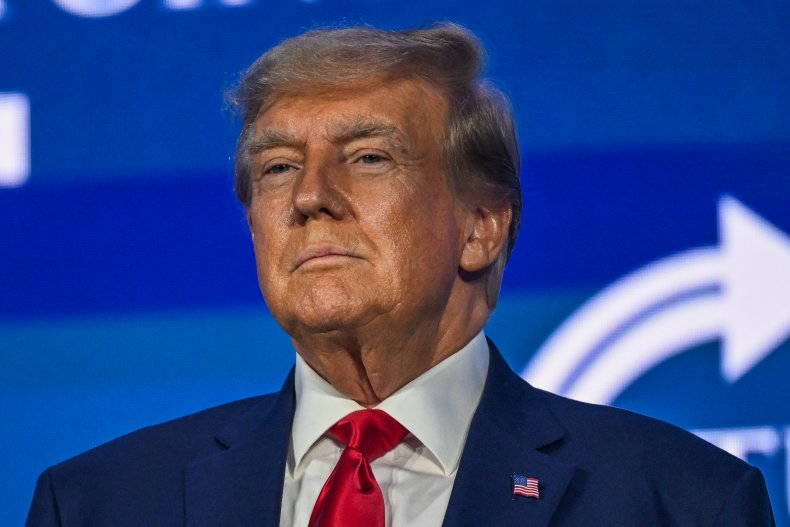Judge Aileen Cannon, who is overseeing the Mar-a-Lago classified documents case involving Donald Trump, has an opportunity to prove that she is not biased towards the former president as some legal experts have suggested now that pretrial preparations are set to begin.
Cannon, who was appointed to the bench by Trump after he lost the 2020 presidential election to Joe Biden, is set to lead the first pretrial conference on Tuesday where parties will discuss how to use the sensitive materials involved in the trial. Meanwhile, Trump who was charged with 37 counts, including 31 counts of willful retention of national defense information, has pleaded not guilty after being indicted last month.
Cannon is also due to decide on whether to back Trump's request to push back the start of the case from a potential August or December date until after the 2024 election over reasons including concerns about the potential difficulties of getting an impartial jury, more preparation time needed, and suggestions the GOP 2024 primary frontrunner will be busy on the campaign trail until November 2024.
If Trump were to win the next general election, he would be immune from prosecution as president, although he could still be removed from office if he were impeached. Alternatively, the Department of Justice (DOJ) under a Trump administration could also withdraw the charges all together.

Newsweek has reached out to the DOJ for comment via its contact form.
Ahead of Tuesday's hearing, Trump told Fox News host Maria Bartiromo on Sunday Morning Futures that he believes Cannon will grant the request to push back the trial.
"I know it's a very highly respected judge. A very smart judge, and a very strong judge," Trump said, adding that he was "proud" to have appointed Cannon as district judge in the Southern District of Florida in November 2020. "But she's very smart and very strong, and loves our country. We need judges that love our country so they do the right thing."
As the judge in the case, Cannon will have the authority to postpone the trial date as far back as she wishes. She had previously faced calls to recuse herself from the case over concerns about her impartiality towards the former president, given her previous decisions and rulings, which delayed the classified documents investigation and slowed down the DOJ's evidence gathering attempts.
Former federal prosecutor Jeff Robbins said there is no reason that Cannon who originally scheduled the classified documents trial to be held in August before the DOJ asked for it to be postponed until December should take Trump's side and delay proceedings any further.
"You're seeking an extra — what — year and a half on the grounds that if the trial is held before the election, you can't get a fair trial?" Robbins told The Hill on Sunday. "Or B) In a case which actually is not particularly complicated at all, it's so complicated that your lawyers need millennia and change before they can adequately prepare for trial. Or C) 'I'm going to be so busy dealing with these other issues that I don't have time for your little trial, judge.'"
Robbins added that Trump's legal team's requests for a delay until after November 2024 "would be laughed out of court in 99 out of 100 courtrooms."
Writing in her Substack blog last week, former federal prosecutor Joyce Vance also suggested the decision on delaying the start of the trial will answer questions on whether "Cannon, who leaned so heavily on the scales of justice in [Trump's] favor last time, can truly be fair now."
Cannon caused controversy last year after she went against the DOJ's view and appointed a special master, Raymond Dearie, to review the thousands of seized materials removed from Mar-a-Lago, Trump's resort residence in Florida, delaying the federal investigation. She also told prosecutors they could not use more than 100 top secret materials seized as part of their evidence.
The U.S. Court of Appeals for the 11th Circuit later ruled in favor of the DOJ on appeal, stating that Cannon had "improperly exercised equitable jurisdiction" to make such a decision.
She was also criticized by legal experts for ignoring a request from Dearie, which meant Trump did not have to specify in court filings which of the documents seized from his Mar-a-Lago resort in August 2022 he had declassified while still in office.
Cannon's ruling also meant Trump could not testify under oath that he believes federal agents could have "planted" evidence against him, which Trump originally suggested soon after the FBI searched this home.
Update 7/17/2023, 12:13 p.m. ET: This article has been updated with additional context.








